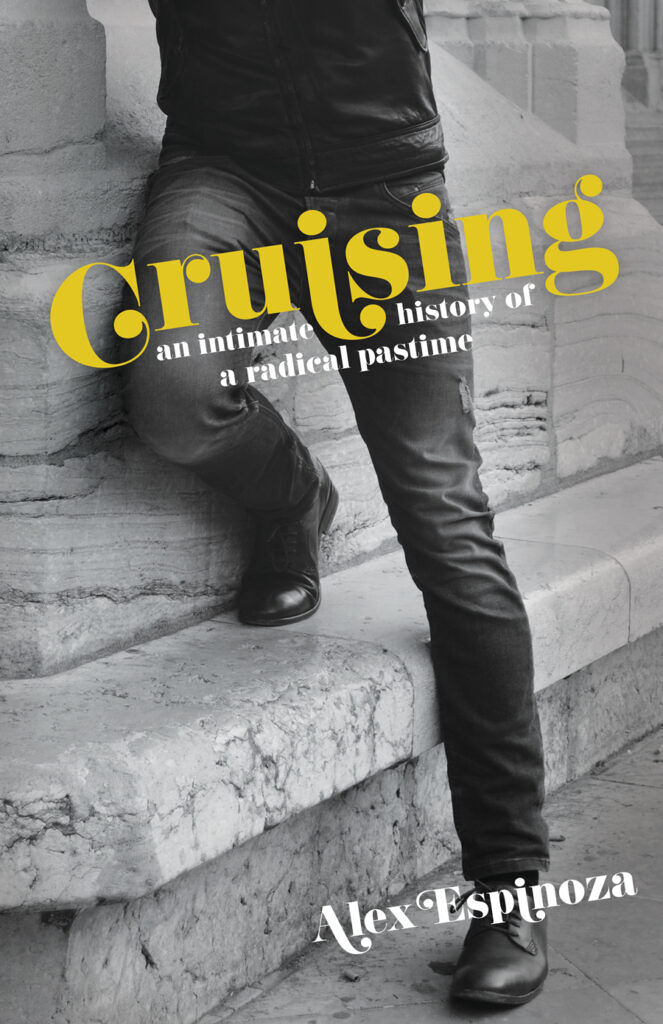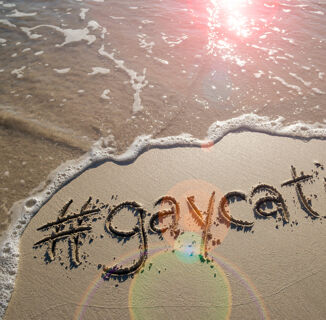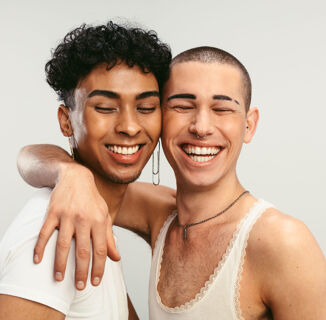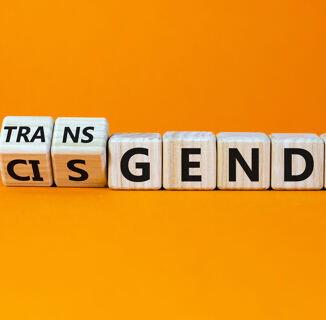For six years, my best friend was a straight man. I’m using the word “was” not because he finally came around to the queerness so many of us had projected onto him, but because we are no longer friends. This straight male friend was caring, charismatic, and embodied the ethos of the perfect ally. He felt comfortable around all my queer friends and he offered to do the things that someone like me was not built to do, like carry heavy things. The issue was that he couldn’t stop wanting to f*ck all my women friends.
I take full responsibility for missing the signs: The way he’d take my women friends on dates and the way those women would text me afterward, confused when the straight man friend showed up to their “impromptu hangout” with flowers. He would compliment women on the street, which I didn’t process as catcalling — I thought my straight man friend was just super friendly. I regret not being more vigilant. I guess some part of me wanted to believe that he was fundamentally different from other straight men I knew, that he was better.
But no matter how many times I told him, and no matter how many times he promised he wouldn’t, he couldn’t stop hitting on my friends. The way I worried about his next moves made me feel like his chaperone or worse, his mother. It made me wonder if we, as queer people, could even have best friends who are straight men, if we want to protect our peace.
In the year 2023, in cities like New York, queer people—especially queer men—have to be aware that our queerness grants us a certain degree of social caché, if not institutional power. Our cultural capital in spaces like the arts and nightlife means that a certain type of straight man, perhaps one with creative aspirations who has never been altogether comfortable with his own masculinity, is bound to flock to us like moths to a flame. This type of straight man tends to appear somewhat fluid and always presents himself as “down,” although it’s clear that he is interested in no one except himself and the cis women he finds attractive.
I always saw him as a good straight man who loved and cared for me, and that the fact of my queerness didn’t factor into our dynamic. But throughout the course of several years, I began to realize that it was actually my queerness, and the opportunities it granted him, that were the only things that really computed.
This type of straight man tends to be in awe of our authenticity and our defiance to be who we want to be in spite of what our culture tells us. He doesn’t fully understand it, which contributes to his admiration. My straight man bestie didn’t just tolerate my queerness — he was obsessed with it.
He would tell me that he loved how I was masculine in my assertiveness, but was also soft “like a woman”. At first, I welcomed the flattery, even if it had deep homophobic and misogynistic undertones. For one, it fulfilled my ego. But another part of me thought that it was nice that I could live in harmony with straight men, to imagine a world in which I wouldn’t have to spend the rest of my life at odds with them.
Related:
A Queer History of My Straight Friendships
Unlike a lot of cis queer teen boy stories, I never had crushes on my straight friends
Introducing ‘Into It / Not Into It’, a Column Exploring What’s Actually Good for Us
There’s no template for being queer, but it would be nice to get some informed guidance around here.
I always saw him as a good straight man who loved and cared for me, and that the fact of my queerness didn’t factor into our dynamic. But throughout the course of several years, I began to realize that my queerness, and the opportunities it granted him, that were the only things that really computed.
What I never understood is that this brand of straight man understands that straight women tend to trust gay men by proxy. His best friend—me—was an outwardly queer person and because he did things like paint his nails black and wear jockstraps at parties, there was no reason for anyone to believe that he was anything other than a gay man. Two women friends he tried to date told me that they trusted him at first because they thought he was queer.
Obviously, not everyone shares my negative outlook on having a straight friend bestie. Alex Espinoza, an Associate Professor at UC Riverside and the author of Cruising: An Intimate History of a Radical Pastime, has had a straight best friend for twenty years. In contrast to my former friend, Espinoza says he’s never felt fetishized or exploited by his. The only conflict that he can remember was during the George W. Bush era, when Espinoza was constantly angry and his straight friend told him to “just ignore” politics. Espinoza remembers thinking that it was easier for his straight man friend to disengage from politics because it didn’t affect him in the same way.

Ultimately, for Espinoza, the pros of having a straight best friend has far outweighed the cons. “So much of the queer community, like all communities, can become insular. My best friend helps me remember that there are other perspectives out there,” he tells me. “His views ultimately make me a better homosexual!”
Fair enough.
Straight-gay friendships have become increasingly common in the media, which I do think is cause for celebration. There’s Otis and Eric in Sex Education, Charlie and Tao in Heartstopper, Kimmy and Titus in Unbreakable Kimmy Schmidt and many others. There’s a reason these friendships work: Straight people can get a perspective from queers that they just don’t get with other straight people. For queer people, our proximity to straight friends can be like a protective layer from a culture that often disdains us.
Even with the person I’m no longer friends with, there was an undeniable beauty to our dynamic; the way we could discuss our crushes without any underlying jealousy, the way I’d feel safer when I was around him in public if I dressed more femme. There was a point where we were like brothers, a level of platonic intimacy that can feel impossible to achieve with other queer men.
In the end, maybe it’s not really about my friend being a straight man, but the fact that he was a straight man who was an opportunist and saw queer people as rungs in a ladder he didn’t feel he could climb on his own. Where I saw friendship, he saw novelty. Where I saw genuine connection, he saw opportunity. Where I tried to see a best friend, he saw a queer man surrounded by lots of pretty women friends that he wanted to f*ck.
The verdict for straight men as besties: Into It, but only if they give you genuine space and respect your boundaries. As soon as you feel they are benefiting from your identities a little too much and getting to know too many of your friends — run. There’s a difference between a friend and a leech, no matter their sexuality. ♦
Don't forget to share:
This article includes links that may result in a small affiliate share for purchased products, which helps support independent LGBTQ+ media.
Help make sure LGBTQ+ stories are being told...
We can't rely on mainstream media to tell our stories. That's why we don't lock our articles behind a paywall. Will you support our mission with a contribution today?
Cancel anytime · Proudly LGBTQ+ owned and operated
Read More in INTO It / Not INTO It
The Latest on INTO
Subscribe to get a twice-weekly dose of queer news, updates, and insights from the INTO team.
in Your Inbox















